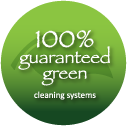Dangers of Antibacterial Soaps- Article from the Globe and Mail
Antibacterial products are more popular than ever nowadays, thanks in part to fears over infectious diseases such as H1N1 and SARS.
But this week, the Canadian Medical Association called on the federal government to ban all antibacterial household products because of fears they cause bacterial resistance.
The motion was proposed by Ottawa family physician Kapil Khatter, who is also president of the Canadian Association of Physicians for the Environment. He says he can understand the appeal of antibacterial products, but in reality they do more harm than good.
The Globe and Mail talks to some experts concerned about the risks of antibacterial household products.
Why are doctors worried about the growing popularity of antibacterial products?
A growing body of research is showing that antibacterial products can cause bacterial resistance, thus decreasing the effectiveness of antibiotics. The most common ingredient in antibacterial products is a chemical compound called triclosan, which was invented more than 35 years ago and used by doctors during surgical scrubs.
But as the chemical creeps into more and more household products, it’s also causing bacteria to become more resistant – not just to triclosan, but also other antibiotics such as isoniazid, a drug used to treat and prevent tuberculosis.
Researchers are also finding that the majority of women are now showing traces of triclosan in their breast milk, Dr. Khatter says. “We don’t know what the potential impacts of that are,” he says. “Breast milk is kind of the canary in the coal mine. It’s the easiest way we can measure if something’s building up in people.”
What are the environmental effects of chemicals like triclosan?
Research has shown that over 95 per cent of products containing triclosan are disposed of through residential drains. Unfortunately, the compound is also extremely stable, so it tends to stick around in the environment.
According to Mike Layton, program manager with advocacy group Environmental Defence, triclosan can react to chlorine in drinking water and form chloroform, which is a carcinogen. And when triclosan reacts with light, it can actually form poisonous dioxins, he says.
Recent studies have also shown that triclosan is harmful to the development of frogs. This is a worrisome sign, says Mr. Layton, because the “repercussions just get amplified throughout the food chain.”
What kind of products contain triclosan?
There are hundreds of products that contain triclosan nowadays, with everything from liquid soaps and toothpastes to deodorants, clothing, tissues and toys. Beyond Pesticides, a non-profit organization in the United States, has an extensive list of everyday products containing triclosan, such as Colgate Total, Old Spice High Endurance Stick Deodorant, Aveeno Therapeutic Shave Gel and J Cloth towels.
What should I use instead to cut down on my risk of H1N1?
When it comes to protecting oneself against the spread of infectious diseases, it’s all about going back to the basics, doctors say.
“Really all you need is soap and water and the alcohol rubs that are available,” Dr. Khatter said. “There isn’t any benefit to going to these other products – there’s only potential harm.”
What about sanitizing gels like Purell? Are they safe to use?
For Dr. Khatter, the answer is yes. In fact, he prefers using alcohol rubs to soaps because they’re easier on the skin and every bit as effective. “We’re not as worried about [alcohol rubs]causing bacterial resistance,” he says.
But the efficacy of alcohol rubs also depends on how they’re being used, Dr. Khatter says. It’s important that people rub alcohol gels on their hands long enough for them to work.
“It’s not just the product, it’s the actual friction of when you’re rubbing your hands and getting all of it on your skin for it to actually work,” he said. “So, should it work for a virus like H1N1? As far as we know, yes, but only if you use it properly.”




